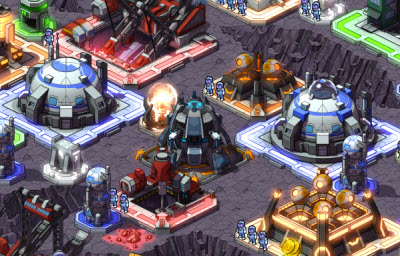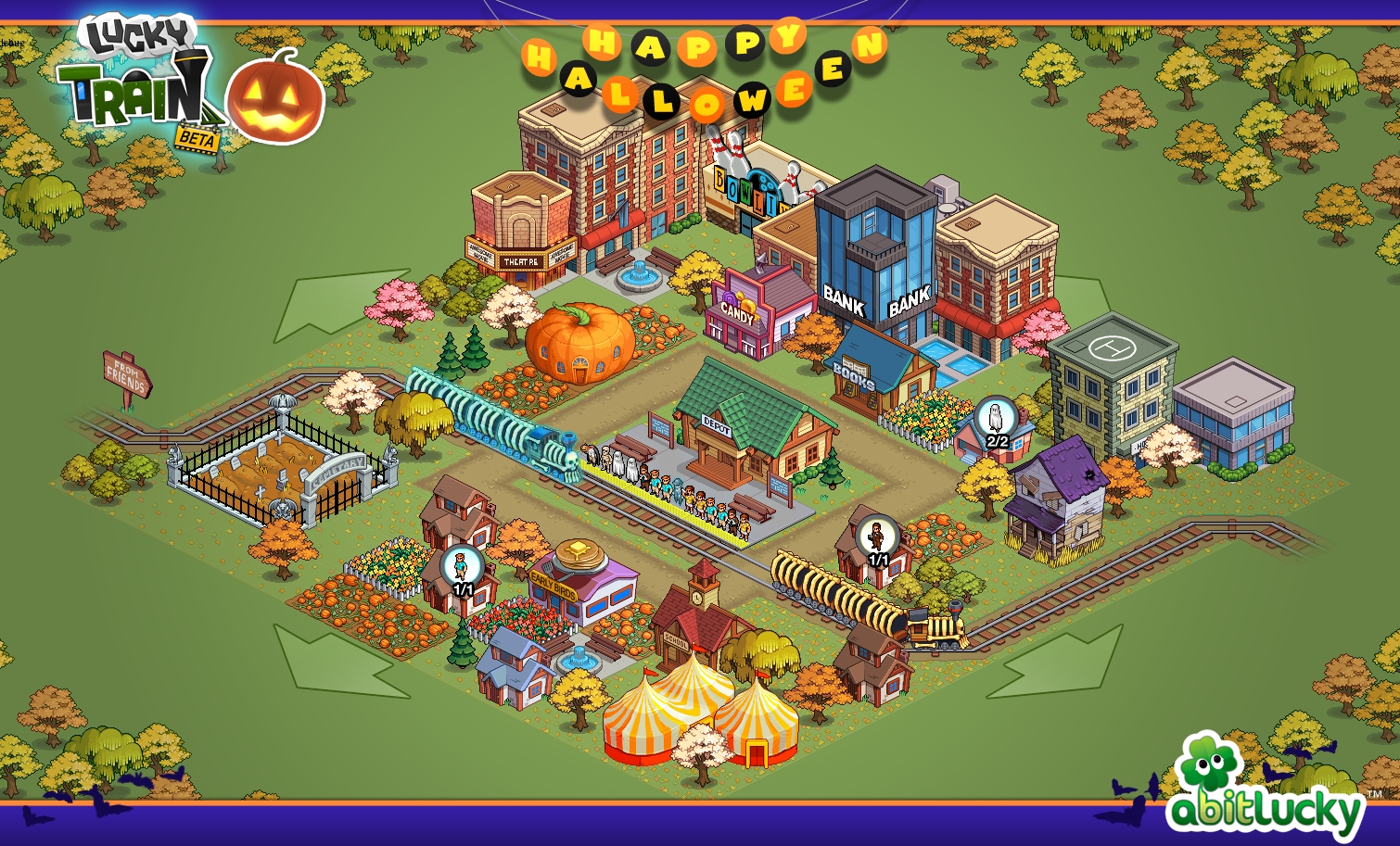Social gaming had a unique origin in that the industry was started by people who mostly weren’t that familiar with game development, leading to some unique decisions with the games and original means from which revenue was made. It also illustrated a new area and opportunity for those with a background in game development, a demand being filled by new companies like A Bit Lucky. We talked with Frederic Descamps, CEO of A Bit Lucky, about the social gaming industry, the company’s first foray in Lucky Train and how that helped set up Lucky Space.
[a]list: What did you learn from making Lucky Train?
Frederic Descamps: It’s a good question. It might be the question for Jordan, who is a second generation game designer whose father worked at EA, 3DO and Digital Chocolate. I’ll say though that the intent of the company that drives our game making is super hardcore game development. We’ve played games like League of Legends, MMOs, console games, PC titles, and so on but for now we make social games. We want to bridge the gap between hardcore and social games. We were inspired by game elements from table-top wargames and RPGs, we want to bring those gameplay elements to social games.
[a]list: So what are some of the specific classical elements that inspired Lucky Train?
Frederic Descamps: The game was inspired by Railroad Tycoon from the golden age of PC games. One of the main mechanics is where you send someone a train, and someone sends it to their wife and so on – so it’s worming the way through the social network to people around the world. Business model wise, we’d be selling trains, buildings and passengers to people.
It was the first social game to go full screen; we were very proud of that . We loved high end pixel art and we knew it would be a social game that would appeal to the hardcore. You could send items through to your friends; we thought we would make money from items, with themed items like Thanksgiving, Christmas, Chinese New Year and other items from zoos and circuses.
As it turns out, people were into buying buildings not for their aesthetics, but for their usefulness. 85 percent of users spending of money were males, so they wanted something with good stats. Something could look like a brick or a bottle, but if it had good stats they would use it. So that’s the big lesson – guys buy things based on utility.
We made sure everything is animated, from the trains to the buildings; that’s was another thing we learned from Lucky Train.
[a]list: So, you interacted with people by sending them trains or was their another way…
Frederic Descamps: When we launched the game, we were a very small team and we had to be focused. We decided to launch with multiplayer, so to launch the game you have to invite people to play. But actually, we realized it was a mistake and people wanted to play on their own in a single player mode. With Lucky Space now, we are applying monetization to what players do want and catering to the ways players want to play.
In Lucky Train, different buildings produce different resources at different rates, Without knowing, we designed ways for people to collect those resources differently. Some people want to do it every 24 hours and for others they wanted to log in multiple times a day, so we had to design it to be played numerous different ways.
[a]list: It’s interesting what you note about multiplayer, since even thought social games have “social” in the title, typically they only let you interact with players in indirect ways.
Frederic Descamps: In Asia they’re called Social Network Games (SNGs) because that’s what they are. We thought it had to be social, like with interaction. We play lots of card games; give me a deck of cards and we’ll play something that is more social than anything on Facebook. Chess is social, MULE was a social game and an MMO is social… Counter Strike is social, League of Legends is social. People enjoy playing games with their friends more so than on their own. I was part of Xfire which was a social network for gamers and I saw there that people enjoyed playing with friends the most. In social games there is a opportunity to open it up to more people; looking at it from an hardcore online perspective opens numerous opportunities. You can bring in things from hardcore games to social games. We want to conjugate things from social games and produce the new generation of social and online games will combine the best practices of both.
[a]list: It’s funny that you mention that since a lot of the first generation of social game makers didn’t have a game development background; they were web developers first, they didn’t create things like MMOs.
Frederic Descamps: With Lucky Space, we took things from MMOs, You can upgrade buildings and customize them. We have items that come up to “purple” which is not unlike most MMOs out there.
Old social game developers apply the “consumer web” method. Originally lessons of game design were being called old fashioned. Now the space has come full circle – originally it was like you were eating low quality food like hot dogs and saying “cooking is overrated.” Well I think the social games industry has changed and it has regained respect for traditional game development. Zynga has changed the way the make games. Making crappy games – anyone can do that! You can go to a business school and say “Can you make a game? Doesn’t matter how good it is.” Everyone is realizing that gameplay design and polishing are one in the same. We want to have high production quality.
 Lucky Space
Lucky Space
[a]list: Style of Lucky Space is very attractive and colorful.
Frederic Descamps: Flash is a very limited technology and we’re milking it as much as we can. I think we do pretty good job of graphics relatively reminiscent of StarCraft and Command & Conquer. We model it in 3D and put it in pixel art.
As a business guy, I know they’ve been working on the “glow”for the buildings for weeks – I did the calculating, with four employees working on it for two weeks, that’s two months of manpower to make it! So I was initially skeptical we should take that much time, and then I see it and I go, “Holy crap it was worth it!” Polish is gameplay, Jordan likes to say. There is the philosophy of releasing social games with the Minimum Viable Product – namely, if you’re proud of what you’re launching the first time you spent too much time on it. It’s a balance though – , if you remember the passengers in Lucky Train, Jordan made the argument that they have to be animated. As with most arguments he won and he was right – the biggest feedback from players was we love having the passengers move and dance around in the train station.
We still like to, in a French expression, put butter in the spinach. It’s good to put a little more butter or cream in the spinach to make it taste better. We really tend to be more detailed. We want more animations, we want to be more high quality and [we want the players to] know they’re not dealing with a low quality games and [for them to] play with the mechanics and be hooked. We believe that social and regular gaming are merging and we want to combine the best of both worlds.
Check back next week for more from A Bit Lucky!
_ _
Played Lucky Train? Like the refinements made in Lucky Space? Join the discussion on Facebook.

 Lucky Space
Lucky Space